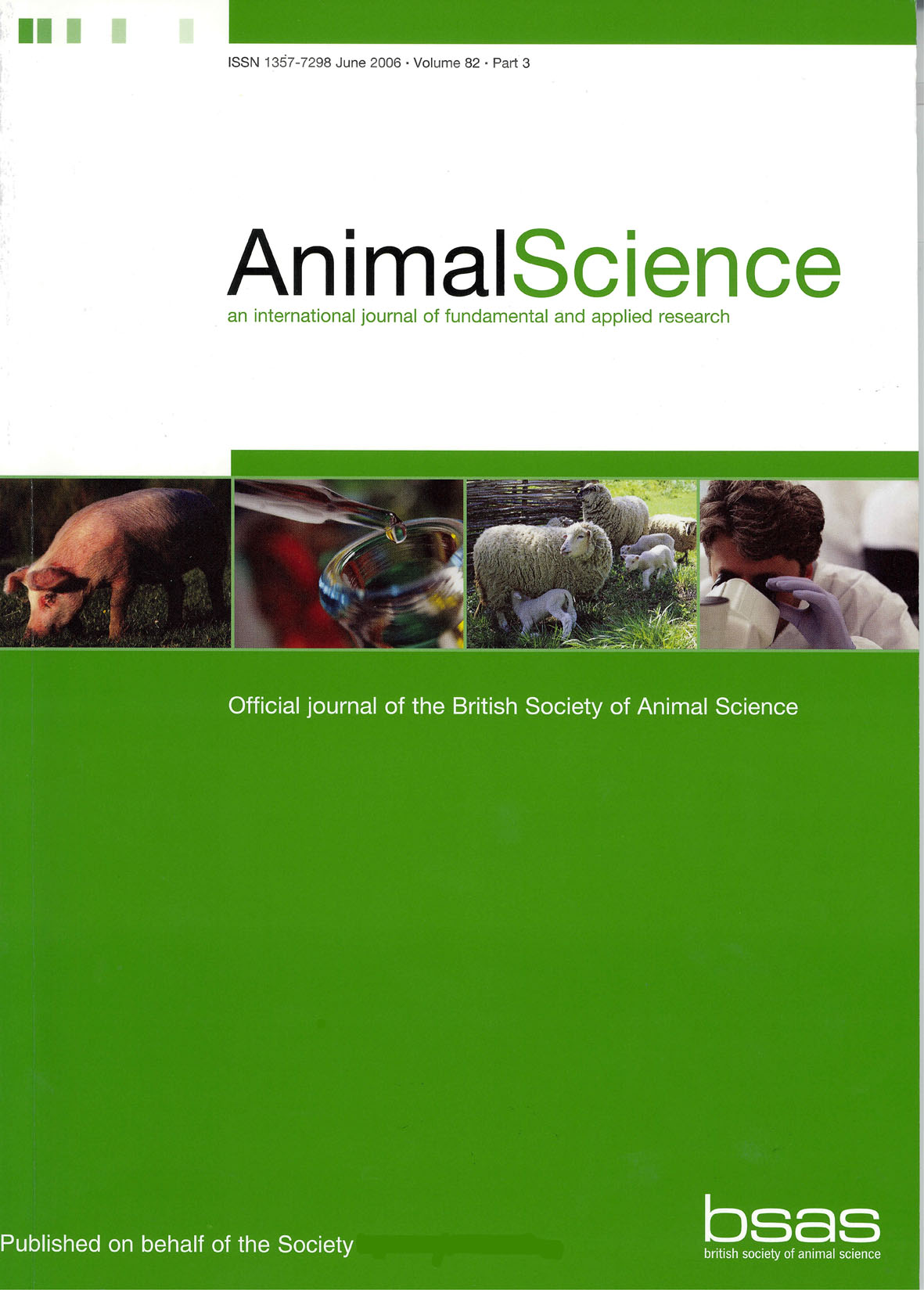Article contents
Inter-age correlations of food conversion efficiency with body weight, growth rate and food intake within and between British breeds of cattle
Published online by Cambridge University Press: 02 September 2010
Abstract
In a multibreed experiment 306 females from 25 British breeds of cattle were given a standard pelleted diet ad libitum. Correlations of food conversion efficiency (FCE) with body weight, weight gain, and food intake were studied over 12-week and longer periods from 12 to 72 weeks of age. Inter-age correlations of FCE with itself and the other traits were also studied over age intervals separated by 12, 24, 36 and 48 weeks. The between-breed correlations were genetic while the within-breed correlations were phenotypic.
Between breeds, FCE measured over the full age range from 12 to 72 weeks appeared to be very highly correlated with FCE measured over the 12-week period between 24 and 36 weeks of age. Correlations of 12 to 72 week FCE with traits not requiring measurement of food intake were much lower, being at most 0·77 for weight gain, 0·73 for weight gain per unit body weight and 0·57 for body weight. The pattern of correlations implied that over constant age ranges the larger faster-growing breeds with high intakes tended to be more efficient; however, these correlations were generated primarily at early ages between 12 and 36 weeks and FCE at later ages could not be predicted from other traits measured at earlier ages. Nevertheless, between-breed selection to improve FCE by indirect selection on body weight and weight gain could be effective but there would appear to be no advantage in waiting beyond 1 year of age.
Within breeds, correlations of 12 to 72 week FCE with FCE measured over 12-week periods increased with age from 0·24 to 0·61. Correlations of FCE with weight gain in the same 12-week periods were quite high (0·49 to 0·89) and those with weight gain per unit weight were invaribly higher (0·68 to 0·90). However, as a predictor of FCE in any subsequent period, weight gain per unit body weight was poor and weight gain of no value whatsoever. There was no strong association of FCE with body weight.
- Type
- Research Article
- Information
- Copyright
- Copyright © British Society of Animal Science 1986
References
REFERENCES
- 1
- Cited by


